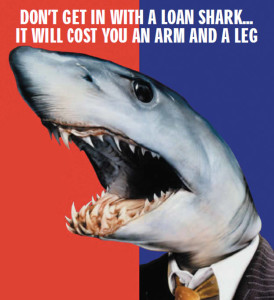
CO-04 (Special Election)
See Full Big Line
(R) Greg Lopez
(R) Trisha Calvarese
90%
10%

President (To Win Colorado)
See Full Big Line
(D) Joe Biden*
(R) Donald Trump
80%
20%↓

CO-01 (Denver)
See Full Big Line
(D) Diana DeGette*
90%

CO-02 (Boulder-ish)
See Full Big Line
(D) Joe Neguse*
90%

CO-03 (West & Southern CO)
See Full Big Line
(D) Adam Frisch
(R) Jeff Hurd
(R) Ron Hanks
40%
30%
20%

CO-04 (Northeast-ish Colorado)
See Full Big Line
(R) Lauren Boebert
(R) Deborah Flora
(R) J. Sonnenberg
30%↑
15%↑
10%↓

CO-05 (Colorado Springs)
See Full Big Line
(R) Dave Williams
(R) Jeff Crank
50%↓
50%↑

CO-06 (Aurora)
See Full Big Line
(D) Jason Crow*
90%

CO-07 (Jefferson County)
See Full Big Line
(D) Brittany Pettersen
85%↑

CO-08 (Northern Colo.)
See Full Big Line
(D) Yadira Caraveo
(R) Gabe Evans
(R) Janak Joshi
60%↑
35%↓
30%↑

State Senate Majority
See Full Big Line
DEMOCRATS
REPUBLICANS
80%
20%

State House Majority
See Full Big Line
DEMOCRATS
REPUBLICANS
95%
5%
 April 14, 2016 11:44 AM UTC
April 14, 2016 11:44 AM UTC 14 Comments
14 Comments An alert from the Bell Policy Center yesterday warns of a reprise of one of last year’s
An alert from the Bell Policy Center yesterday warns of a reprise of one of last year’s
Are you fucking kidding me? I must have missed this. Goddamn it Jovan, why do you run with these loan sharks?
Hoping for another Hick veto.
Shame on any Dem legislator who deludes him/herself that this is good for anybody.
It might be good for the legislator …
… 'tis another campaign (funding) year, after all!
Let's not forget, this turd passed through the House 62-2. There's no misunderstanding at this point. These "defenders of the poor" are hellbent on giving vulnerable people access to these indefensible loans, no matter the cost (not in political capital to the lawmakers, of course, but in interest to borrowers).
The market has spoken, and lenders are clearly perfectly fine making loans that are merely usurious. Why the need to shift that interest into Ludicrous Speec (yay, Spaceballs)?
Dickey Lee could send this nonsense to sleep with the fishes with the stroke of a pen. Let's see if she will in her last year (IIRC) or if maybe she's hoping for a little taste once she's a free agent.
Just AIG's executives' special way of saying, "Thanks, another billion (or twelve)
suckerstaxpayers!! (again!!) and all you other little folks who've never stopped paying to bail our greedy asses out."… And, in AIG's defense, they really do need lots more money this election year — to buy-off more of your legislators.
A bit more information.
Supervised loans are described by the attorney general's office as
Consumer credit sales are what you think they would be. A sale of goods, services, a mobile home, or an interest in land by someone who regularly offers credit, to a person, for an amount less than $75,000.
Lol, missing edit function makes chump out of poster.
I accidentally adjusted the interest rates, not the amount financed as the law does and only noticed my oops after posting.
Up to $1,390 – 36%
More than $1,390, but less than $4,170 – 21%
More than $4,170 – 15%
Outrage still present!
While we figure out what is wrong with the edit function, we took the liberty of removing the figures in error for clarity. Thanks for your diligence and we'll get the editor fixed ASAP.
Personally, I just try to read what I write before I post. 🙂
Proofreading is so 20th century…
Oooh, fancy comment editor! (edit 1)
Ooooooh, BlueCat! Spell checker! (edit 2)
When you have it you get lazy. What can I say.
Yes and no. Not as simple as it seems, it's a system of tiers that are blended into a loan amount's maximum allowed rate.
36% is the maximum charge that could be charged on the first $1,390 of loan amount, then up to 21% on the amount $1,391 through $4,170 of the loan amount, and then up to 15% on the amount of the loan amount over $4,171. A $10k loan could have a portion of interest charged at 36%, a portion at 21%, and a portion at 15%.
On larger loan amounts, a larger portion of the total interest is charged at 15%, so that at some point the blended total interest based on the tiers could fall below 21%. This is where another "21%" comes in — that's the "lowest maximum" rate for any loan amount; so that even a $100k, or more, loan could be allowed to have up to a 21% total rate in Colorado.
… please continue your outrage.
Whenever this comes up, I can't help but remember that when I was a newly minted lawyer working as a prosecutor, I put people in jail who charged this kind of vig. We called them loan sharks. My how things have changed – for the worse.
When will you lefties learn? They aren't "loan sharks." They are "job creators." What would big louie the leg breaker do for a living if you put them in jail.?